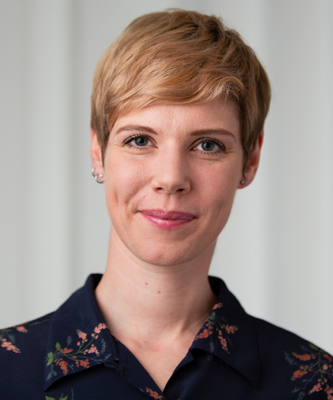
SIG 20 & 26 Conference 2024
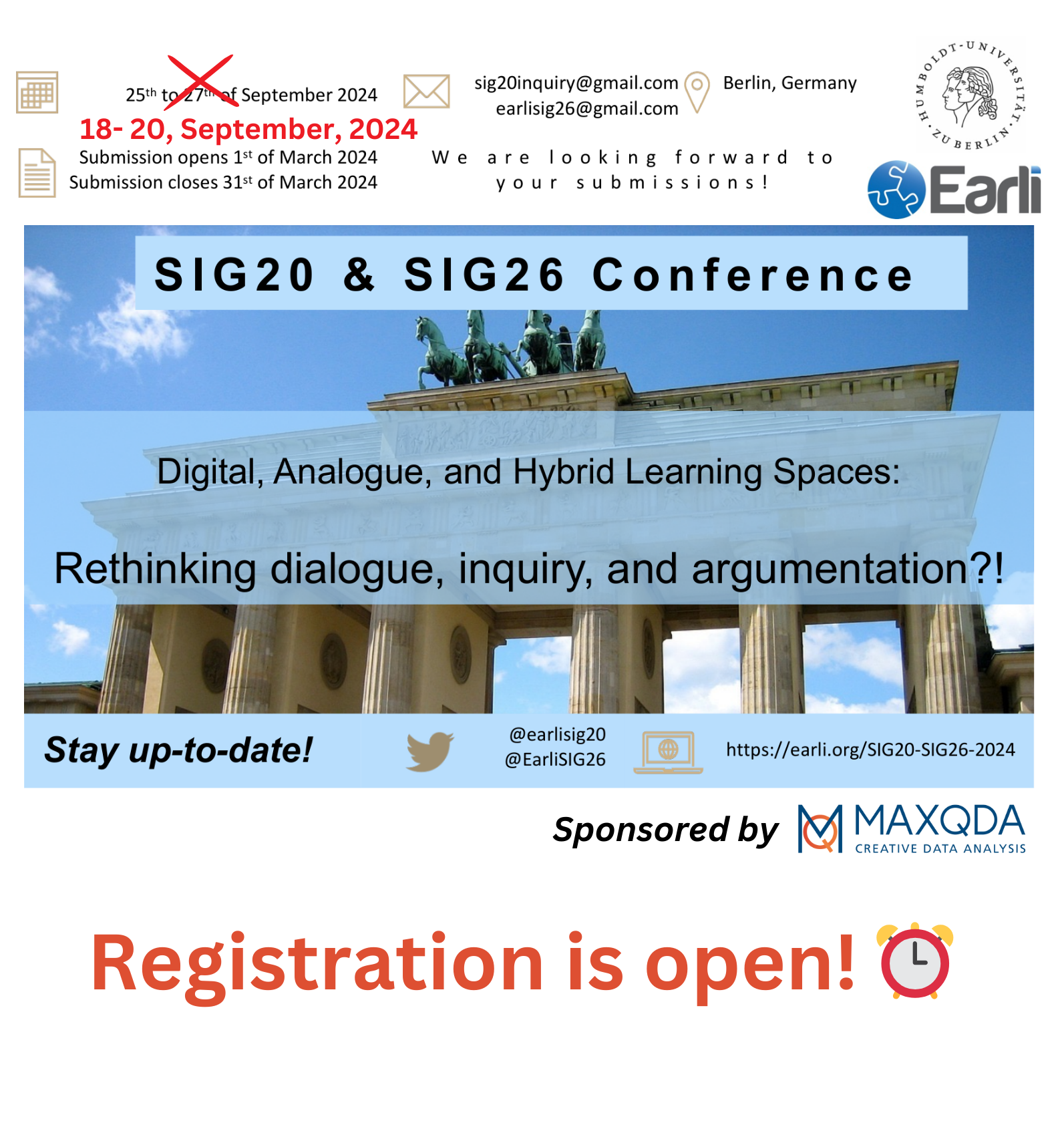


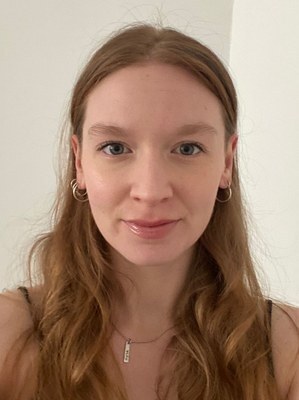
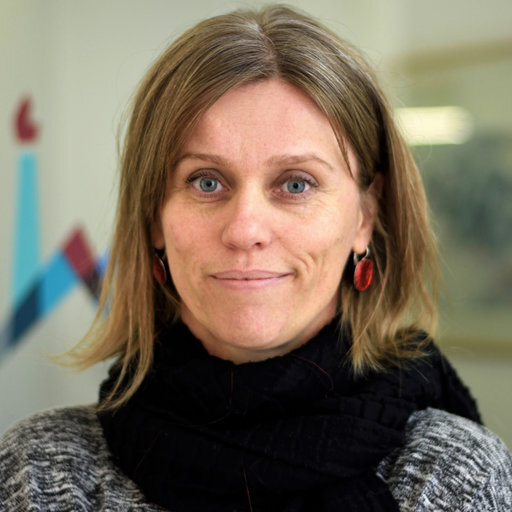
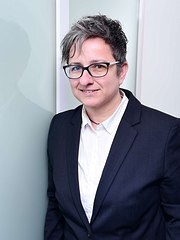
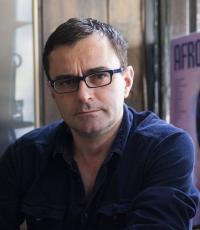
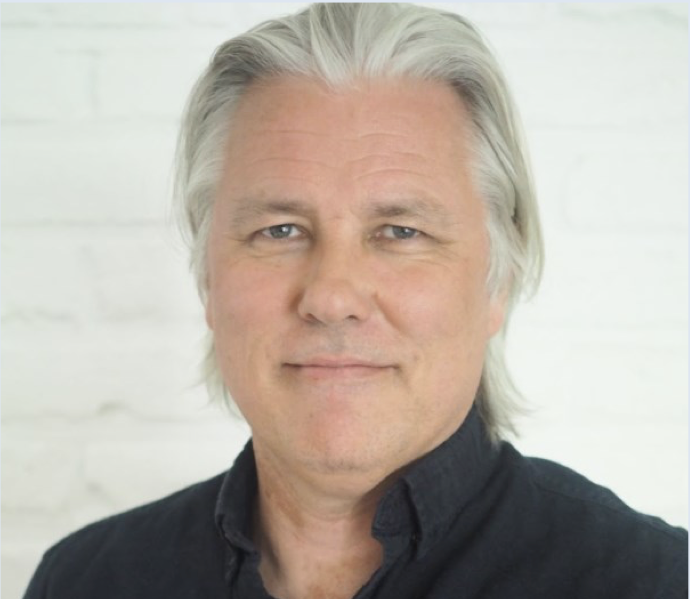
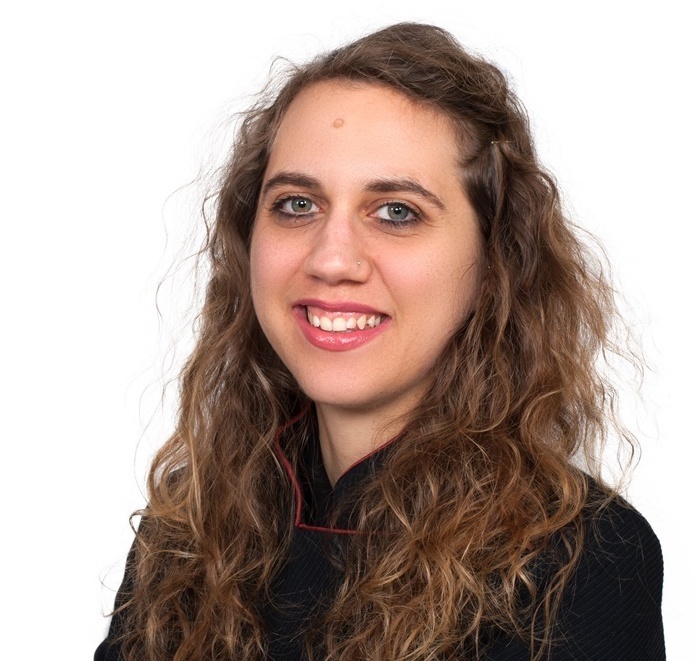
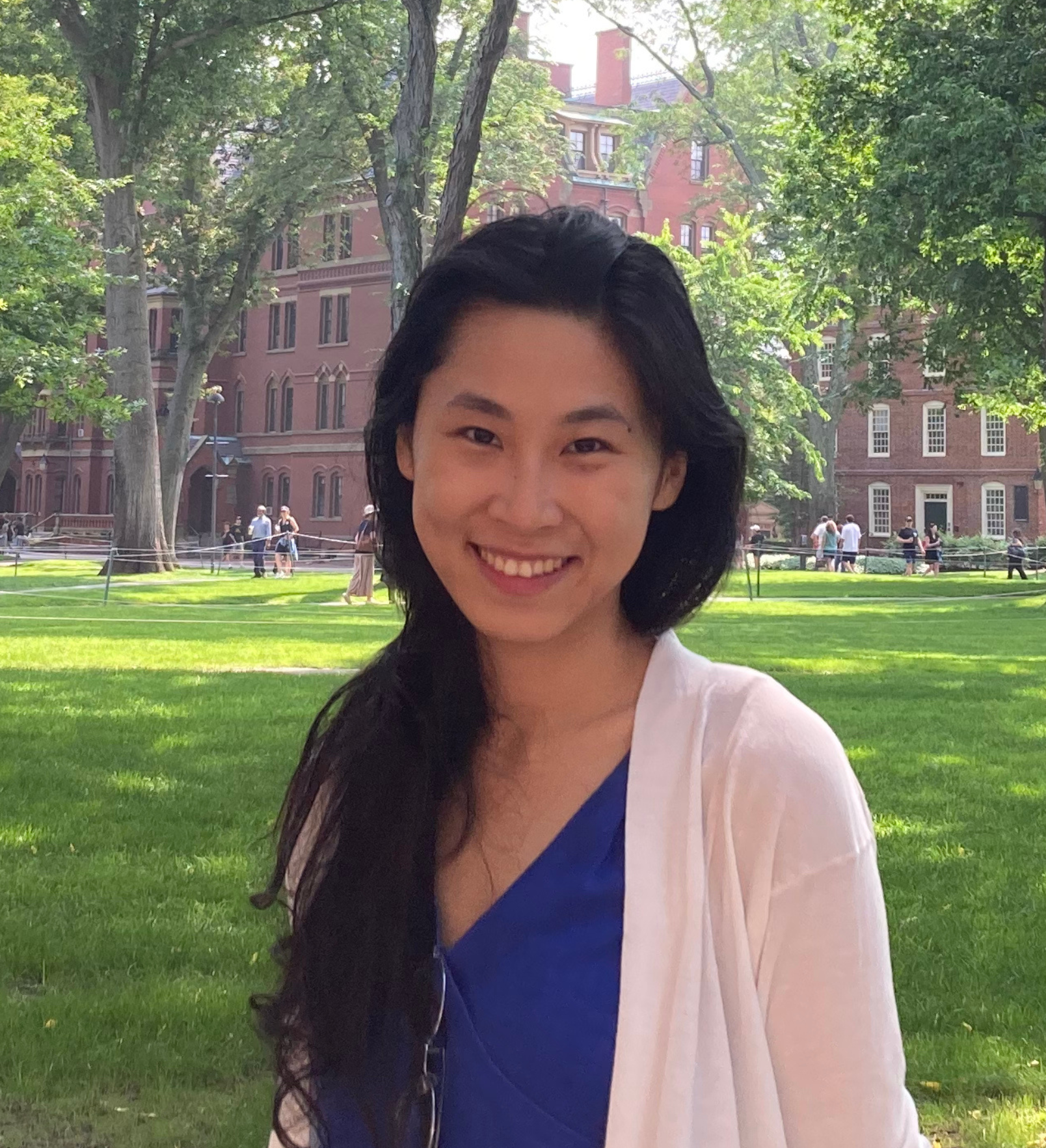
Registration for the Joint SIG 20 & 26 Conference is now open!
You can register for the conference following the link: https://hi.converia.de/frontend/index.php?sub=119
The dinner is included in the conference fee, there is no need to book it separately. Payment options: credit card, PayPal, invoice.
For more information on how to register, you please review our guide.
Important: If you choose to register as an EARLI/JURE member, you need to upload a confirmation.
KEY DATES:
Early Bird Deadline: June 20th, 2024
Registration Deadline for presenters: August 16th, 2024
Registration Deadline: September 6th, 2024
FEES:
EARLI member Early Bird | 300,00 € |
EARLI member Regular | 375,00 € |
JURE member Early Bird | 200,00 € |
JURE member Regular | 250,00 € |
Non-members Early Bird | 375,00 € |
Non-members Regular | 470,00 € |
EARLI/JURE MEMBERSHIP:
You will need to upload a confirmation of your EARLI/JURE member status. The confirmation can be downloaded from your EARLI account. If we cannot verify your member status, you will need to pay the non-member fees.
Instructions on how to that that via your EARLI dashboard are provided here.
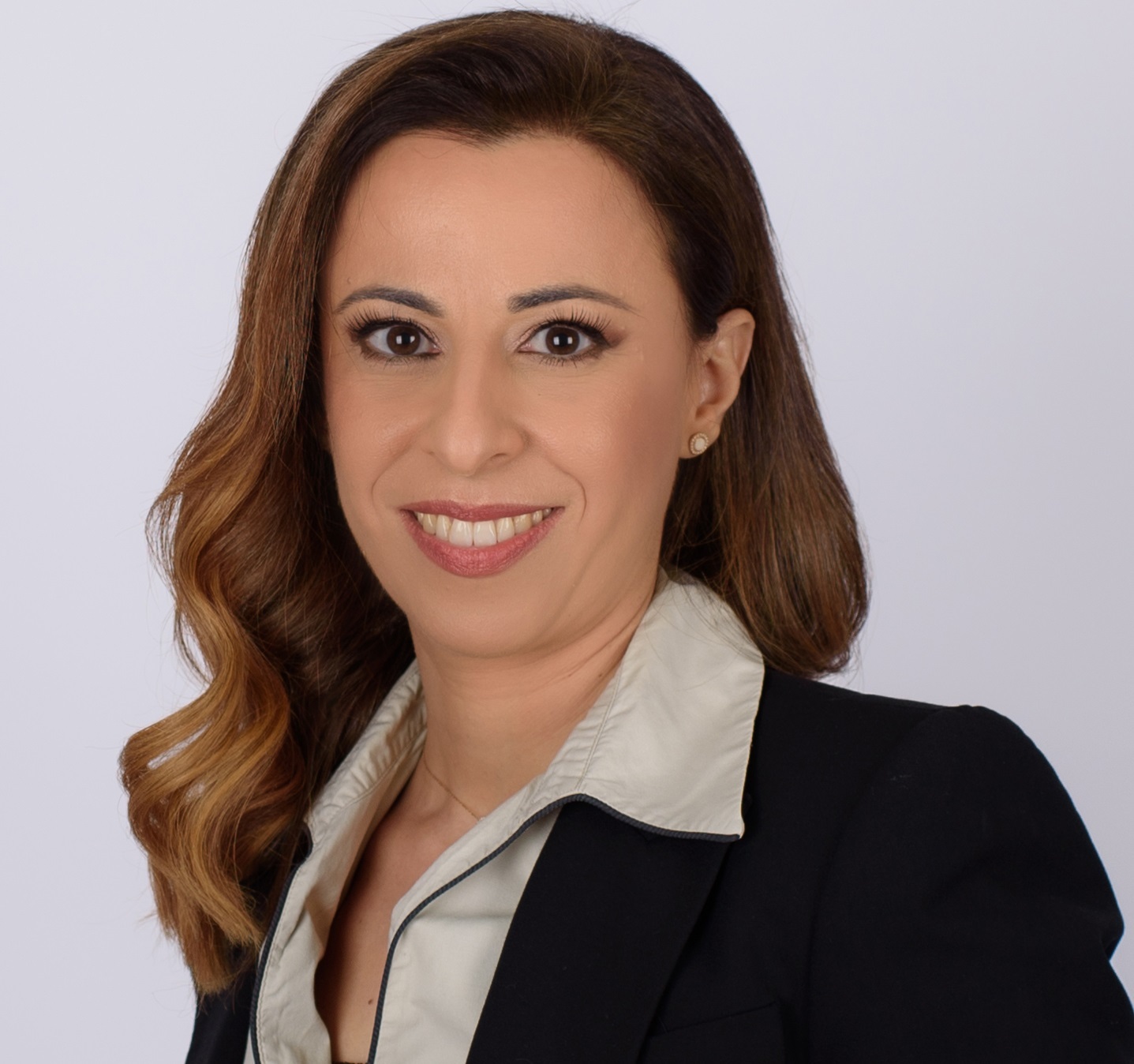
Kalypso Iordanou is a Professor of Psychology at the University of Central Lancashire (UCLan), Cyprus. She received her PhD in Educational Psychology from Columbia University in New York, after receiving a Fulbright scholarship. Her work focuses on argument skills, epistemic cognition, reasoning in online engagement, and using technology to promote thinking-skills and learning. Her work has been supported by several research bodies including the European Commission and the Research and Innovation Foundation (RIF). Some of the projects she has been working on are the design of interventions for supporting students’ argumentation skills and reducing prejudice (ARE-PRED, Excellence Hubs-RIF), ethical issues of AI and Big Data that challenges democracy (SHERPA, Horizon 2020), trust in science (VERITY, Horizon-Europe), and extremist reasoning in social media (SMIDGE, Horizon-Europe). Her research achievements have been honored by awards from several bodies, such as the Fulbright Commission – supporting a Visiting Fellowship at Columbia University (US) in 2017- and the Research and Innovation Foundation, awarding her the National Young Researcher Award.
SIG 26 Keynote: Think and think about thinking: The power of developing argumentive and meta-level reasoning in confronting the challenges of today's world
The dominance of emerging technologies in our lives have imposed new challenges to making informed judgments and have greatly increased the importance of understanding the mechanisms that influence people’s judgments and behaviours. There is a pressing need to find ways to re-empower humans' thinking and safeguard the democratic foundations of our societies which are at stake.
In this talk, the challenges to reasoning posed by interacting with the world wide web are considered, drawing from empirical studies, network analysis and focus groups. It will be argued that to promote sound reasoning, evidential standards and public trust in science, a multidimensional approach is needed. Epistemic beliefs and reasoning of key actors involved in knowledge production and its dissemination – such as journalists, scientists, AI developers – all matter.
To deal with these challenges we should invest in supporting individuals’ argumentive reasoning and the metacognitive competencies that support it. A line of research is presented demonstrating that engagement in purposeful discourse, along with reflection, is a promising path to support the development of reasoning, reflection on it, epistemic standards, and metacognitive control of one’s own beliefs. The gains observed encompass both argument construction and argument evaluation. Findings from microgenetic studies are discussed that provide insights on the mechanism of change. Engagement in argumentation as a path to developing epistemic understanding is emphasized in new research findings involving reconciliation of divergent claims on controversial issues.
With rapidly changing technology, investing in empowering human thinking — to set strong evidential standards when deciding what to believe and who to trust, to acquire epistemic vigilance and engage in metacognitive control of one’s thinking and beliefs — both online and offline, is probably our best bet to safeguard individual and societal well-being.
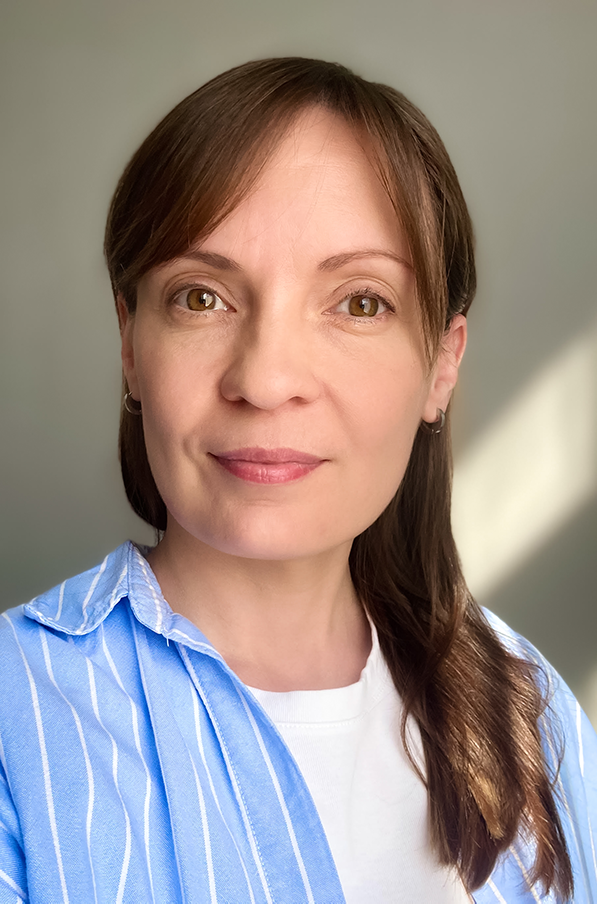
Anastasia Kozyreva is a senior research scientist at the Center for Adaptive Rationality (ARC) at the Max Planck Institute for Human Development in Berlin, where she leads the research area “Cognition in online environments”. She is a philosopher and a cognitive scientist working on the cognitive and ethical implications of digital technologies on society. Her current research focuses on misinformation policy, including public attitudes to content moderation, and cognitive interventions that could help counteract the rising challenges of false information and online manipulation.
Joint Keynote: Reclaiming Autonomy Online: Critical Ignoring and Other Tools for Navigating Digital Challenges
The widespread dissemination of attention-grabbing and manipulative content, including false and misleading information, has become a global problem requiring urgent solutions. This issue is not only a policy challenge—given the risks social media poses to public health, mental well-being, and the integrity of democracies—but also a significant challenge for education. Traditional approaches to critical thinking, developed in an era far less saturated with information, are now being tested in unprecedented ways. Social media, in particular, creates conditions that demand the development of new resistance practices and competencies. In this talk, I will explore the essential tools and skills needed to empower citizens to combat online misinformation and manipulation, and to reclaim their autonomy in attention-driven information environments. I will specifically focus on the competence of critical ignoring and a toolbox of individual-level interventions against misinformation

Dr. John Nesbit is a professor of educational psychology and educational technology & learning design at Simon Fraser University, Canada. Through meta-analyses and primary studies, his research group investigates fundamental and applied topics in the learning sciences. After a PhD program that investigated application of machine learning to instructional design (University of Alberta, 1988), he spent 5 years as a visiting scholar and faculty member at Tsukuba University and Seishin University in Japan. Since joining Simon Fraser University, he has collaborated with colleagues to publish research on evaluation of digital learning resources, concept mapping, multimedia learning, self-regulated learning, self-explanation, and intelligent tutoring systems. In recent years, his research group has focused on two topics relevant to the EARLI SIG 20 & 26 Conference: Tutor guidance in simulation-based inquiry learning and argument visualization in postsecondary courses. The research on guidance in inquiry learning starts with the general premise, now widely accepted, that interactive, scaffolded assistance during inquiry tasks is beneficial and investigates which types of guidance (and which triggering conditions for that guidance) are most effective. This research has collected, and is engaged in analysing, over 230 hours of video in which human tutors follow instructional heuristics and/or scripts to guide learners interacting with a scientific simulation. The research on argument visualization has developed, deployed, and evaluated a web-based argument mapping tool (DMap) for scaffolding student argumentation in university courses across a wide range of disciplines.
SIG 20 Keynote: The Role of Adaptive Prompts and Hints in Guiding Simulation-Based Scientific Inquiry Learning
Although there is strong evidence that learners with low prior knowledge need substantial guidance during the inquiry process, more research is required to determine the characteristics of the guidance that should be provided during scientific inquiry. Is it best to guide learners with a limited suite of fundamental scientific inquiry prompts that are given as needed? Or should we provide more fulsome guidance that, in addition to the prompts, follows the learner at every step to also provide hints and confirmatory feedback? As part of an experiment that had learners manipulate a DC electricity simulation to develop their qualitative understanding of Ohm’s and Kirchhoff’s laws, my research group developed 38 scripted prompts along with the specific conditions under which each prompt would be given by a human tutor. The participants were randomly assigned to receive either minimal guidance with no adaptive prompts (Control group), scripted adaptive prompts (Prompt group), or the same scripted adaptive prompts with the addition of hints and confirmatory feedback (PromptPlus group). Learning outcomes were assessed by a posttest and the behaviors of tutors and learners were coded from videos made of each session. The purpose of the research is to develop tutoring principles and heuristics to inform the development of AI-based tutoring systems for simulation-based inquiry learning. Beyond the effects of the experimental interventions, the timing, frequency, and qualities of the individual prompts and hints – and the learners’ responses to them – can tell us much about how to design within-task guidance for inquiry activities.
March 1st, 2024
April 10, 2024
May 23, 2024
May 25, 2024
June 20th, 2024
August 16, 2024
September 6th, 2023
September 18th to 20th, 2024
Leonardo Hotel Berlin Mitte (800m from Conference venue)
H Hotel Berlin Mitte (1.6 km from Conference venue)
Aquino Hotel (1.6 km from Conference venue)
Motel One Berlin Alexanderplatz (1.7 km from Conference venue)
Motel One Berlin Hackescher Markt (1.3 km from Conference venue)
Motel One Berlin Hauptbahnhof (2.4 km from Conference venue)
Park Inn Berlin Alexanderplatz (1.5 km from Conference venue)
Intercity Hotel Berlin Hauptbahnhof (2.1 km from Conference venue)
Steigenberger am Kanzleramt (2.1 km from Conference venue)
Booking accommodation via Airbnb is also an option. With public transport, you can easily reach the conference venue from other parts of the city. Google Maps can help estimate the distance from your accommodation to the venue and suggests various modes of transport.
Transportation
There are many ways to get around Berlin:
Public Transport (S-Bahn, Tram, U-Bahn, Bus): Book tickets via the BVG App (4 single rides: https://www.bvg.de/en/subscriptions-and-tickets/all-tickets/single-tickets/4-trip-ticket; 24h ticket: https://www.bvg.de/en/subscriptions-and-tickets/all-tickets/24h-tickets/24h-ticket) and use Google Maps or the BVG App (https://www.bvg.de/en/subscriptions-and-tickets/all-apps/fahrinfo-app) or Deutsche Bahn App (https://www.bahn.de/service/mobile/db-navigator) to plan your journey.
Taxis: You can also order an Uber, Bolt, or FreeNow to get you from A to B.
E-Scooters, Bikes etc.: There are several providers with which you can rent bikes, scooters, and more (see https://www.berlin.de/en/getting-around/).
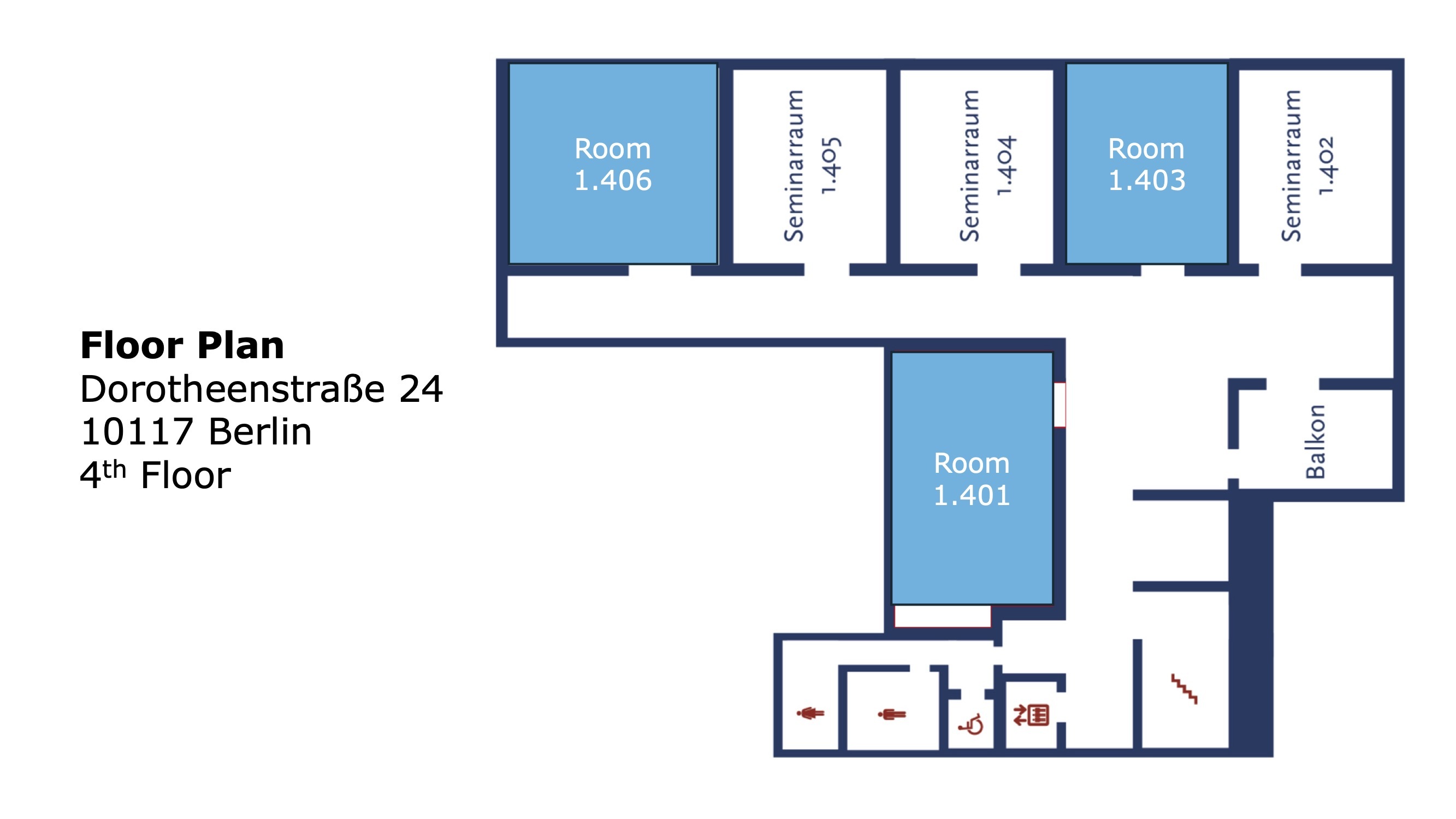
Humboldt-Universität zu Berlin
Humboldt-Universität zu Berlin, founded in 1810, is the oldest university in Berlin and one of the most renowned universities in the world. Today, the HU's teaching and research programmes cover all fundamental scientific disciplines in the humanities, social and cultural sciences, law, life sciences, mathematics and natural sciences, medicine, agricultural sciences and sustainability and antiquity research.
More than 37,000 young people from over 100 countries are currently studying at Humboldt-Universität in 171 Bachelor's and Master's degree programmes under the supervision of around 420 professors. Around 34 per cent of academic staff come from other countries.
Thanks to numerous cutting-edge research projects and renowned international networks, Humboldt-Universität is one of the most important universities in the German-speaking world. In the 2019 Excellence Strategy, it was recognised as an Excellence Network together with the partners of the Berlin University Alliance. It had previously been one of the eleven German Universities of Excellence since 2012.
The HU combines research excellence with innovative support for young researchers. The focus of teaching is on research-based learning, interdisciplinarity and internationalisation.
Location/Rooms:
Dorotheenstraße 24, 10117 Berlin (https://maps.app.goo.gl/BrEj5F...): DOR24: 1.401, 1.403, 1.406
The SIG 20 scientific committee consists of:
Antti Lehtinen (University of Jyväskylä, Finland)
Ard Lazonder (Radboud University in Nijmegen, The Netherlands)
Bram De Wever (Ghent University, Belgium)
Christiana Varda (UCLan Cyprus)
Cindy Hmelo-Silver (Indiana University, USA)
Eleni Kyza (Cyprus University of Technology, Cyprus)
Hannie Gijlers (University of Twente, Netherlands)
Ingo Kollar (University of Augsburg)
Janice Gobert (Rutgers University)
Koen Veermans (University of Turku, Finland)
Margus Pedaste (University of Tartu, Estonia)
Tasos Hovardas ( University of Cyprus, Cyprus)
Tomi Jaakkola (Tampere University, Finland)
Wouter van Joolingen (Utrecht University, Netherlands)
Yiannis Georgiou (Cyprus University of Technology)
The SIG 26 scientific committee consists of:
Adam Lefstein (Hebrew University of Jerusalem, Israel)
Alexander Gröschner (University of Jena, Germany)
Alina Reznitskaya (Montclair University, USA)
Antonia Larrain (Alberto Hurtado University, Chile)
Armin Weinberger (University of Saarland, Germany)
Baruch Schwarz (Hebrew University of Jerusalem, Israel)
Benzi Slakmon (Tel Aviv University, Israel)
Carla van Boxtel (University of Amsterdam, Netherlands)
Chiel van der Veen (Vrije Universiteit Amsterdam, Netherlands)
Christine Howe (Cambridge University, UK)
Chrysi Rapanta (NOVA university Lisbon, Portugal)
Claire Polo (Lyon 2 University, France)
Clark Chinn (Rutgers University, USA)
Edith Bouton (Hebrew University of Jerusalem)
Elisa Calcagni (Pontificia Universidad Católica de Chile)
Gaowei Chen (University of Hong Kong)
Ian Wilkinson (Ohio State University, USA)
Klara Sedova (Masaryk University, Czech Republic)
Kristine Lund (Lyon 2 University, France)
Maria Evagorou (University of Nicosia, Cyprus)
Maria Vrikki (University of Cyprus)
Maureen Boyd (University of Buffalo, USA)
Michael Baker (CNRS, France)
Michael Nussbaum (University of Nevada, USA)
Ricardo Böheim (Technical University of Munich)
Riikka Hofmann (University of Cambridge, UK)
Roman Švaříček (Masaryk University, Czech Republic)
Rupert Wegerif (University of Cambridge, UK)
Sherice Clarke (University of California San Diego, USA)
Sara Hennessy (University of Cambridge, UK)
Ingvill Rasmussen (University of Oslo, Norway)
The Local Organizing Committee:
Elisabeth Mayweg-Paus & Theresa Ruwe.
The SIG 20 Organizing Committee consists of:
● Tasos Hovardas (SIG Coordinator)
● Tomi Jaakkola (SIG Coordinator)
● Christiana Varda (JURE Coordinator)
The SIG 26 Organizing Committee consists of:
● Christa Asterhan (SIG Coordinator)
● Freydis Vogel (SIG Coordinator)
● Lydia Cao (JURE Coordinator)
Contact the organizing committees at sig20inquiry@gmail.com and earlisig26@gmail.com.
More information
For more information regarding the joint SIG 20 and SIG 26 conference “Digital, analogue, hybrid learning spaces: Rethinking dialogue, inquiry, and argumentation?!” in Berlin, Germany, on 18-20 September 2024, please visit the conference website https://earli.org/SIG20-SIG26-2024.
We are very much looking forward to meeting you all in Berlin next September!
(For more information about Berlin, see https://www.visitberlin.de/en)